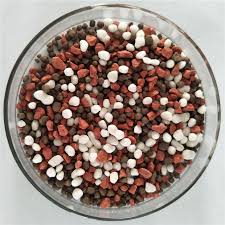
8月 . 22, 2024 00:42 Back to list
Potassium Humate Fertilizer Production Facilities and Their Impact on Agriculture
Potassium Humate Fertilizer Factories An Overview
Potassium humate is a natural organic substance derived from humic acids, which are found in decomposed plant matter, peat, and other organic materials. This compound is gaining increasing recognition in agriculture due to its multifaceted benefits for crop growth and soil health. Potassium humate fertilizers are particularly valued for their ability to enhance nutrient uptake, improve soil structure, and promote microbial activity. As the demand for sustainable agriculture rises, potassium humate fertilizer factories are emerging as key players in the agricultural sector.
Manufacturing Process
The production of potassium humate typically begins with the extraction of humic substances from organic sources, such as leonardite or lignite. These raw materials are subjected to a series of chemical and physical processes to extract humic acids. Once the humic acids are obtained, potassium is introduced, often in the form of potassium hydroxide or potassium carbonate. This combination results in potassium humate, which is then processed into various forms suitable for agricultural use, including granules, powder, and liquid formulations.
The efficiency of manufacturing processes in potassium humate fertilizer factories is crucial. Advanced technologies, such as chemical extraction and filtration processes, are employed to maximize the yield and purity of the final product. Factories also focus on ensuring that the production methods are environmentally friendly, minimizing waste and emissions.
Benefits for Agriculture
Potassium humate fertilizers offer several advantages that contribute to their growing popularity among farmers. Firstly, they serve as an excellent source of both potassium and organic matter, essential nutrients for plant growth. Potassium plays a pivotal role in various physiological processes, including photosynthesis, enzyme activation, and water regulation. By improving nutrient availability in the soil, potassium humate enhances crop yield and quality.
potassium humate fertilizer factories

Moreover, potassium humate improves soil structure by increasing water retention, aeration, and porosity. This benefit is particularly significant in arid and semi-arid regions where soil degradation is a pressing issue. By improving soil health, potassium humate can lead to better root development, leading to stronger and more resilient plants.
Additionally, potassium humate fertilizers stimulate microbial activity in the soil. A healthy population of soil microorganisms is vital for nutrient cycling and organic matter decomposition. Boosting microbial activity helps to establish a balanced ecosystem, which can protect plants from diseases and pests.
Market Demand and Trends
As awareness about sustainable farming practices increases, the demand for natural and organic fertilizers like potassium humate is expected to grow. Farmers are increasingly seeking environmentally friendly alternatives to synthetic fertilizers, which can have detrimental effects on soil health and the environment. The global push towards organic farming and sustainable agricultural practices is driving the expansion of potassium humate fertilizer factories.
In response to this demand, manufacturers are continuously innovating, developing new formulations that cater to specific crop needs and soil types. Additionally, as the market evolves, collaborations with agricultural research institutions are becoming more common, focusing on the efficacy and application methods of potassium humate fertilizers.
Conclusion
Potassium humate fertilizer factories play a vital role in promoting sustainable agriculture by providing essential nutrients and enhancing soil health. As the agricultural sector grapples with challenges such as soil degradation and the need for improved crop yields, the benefits of potassium humate fertilizers cannot be overstated. With ongoing advancements in manufacturing processes and increased commitment to sustainability, the future of potassium humate fertilizers looks promising, positioning them as key components in the quest for sustainable food production.
-
10 10 10 Fertilizer Organic—Balanced NPK for All Plants
NewsJul.30,2025
-
Premium 10 10 10 Fertilizer Organic for Balanced Plant Growth
NewsJul.29,2025
-
Premium 10 10 10 Fertilizer Organic for Balanced Plant Growth
NewsJul.29,2025
-
Premium 10 10 10 Fertilizer Organic for Balanced Plant Growth
NewsJul.29,2025
-
50 Pound Bags of 13-13-13 Fertilizer for All Plants – Bulk & Organic Options
NewsJul.28,2025
-
High-Efficiency 15-30-15 Granular Fertilizer for Healthy Crops
NewsJul.28,2025
